Neuroscience
-
 Neuroscience
NeurosciencePeople who lack olfactory bulbs shouldn’t be able to smell. But some women can
Some women who appear to lack the brain structures that relay scent messages still have an average sense of smell, and scientists have no idea how.
By Sofie Bates -
 Neuroscience
NeuroscienceSleep may trigger rhythmic power washing in the brain
Strong, rhythmic waves of cerebrospinal fluid wash into the human brain during sleep and may help clean out harmful proteins.
-
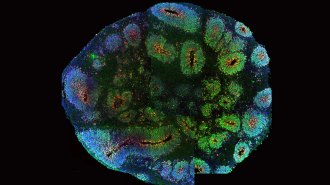 Neuroscience
NeuroscienceLab-grown organoids are more stressed-out than actual brain cells
Compared with real brain tissue, organoids show big differences.
-
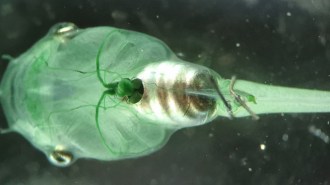 Health & Medicine
Health & MedicineAlgae inside blood vessels could act as oxygen factories
Two types of light-responsive algae make oxygen inside tadpoles’ blood vessels.
-
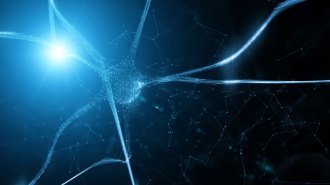 Neuroscience
NeuroscienceLight from outside the brain can turn on nerve cells in monkey brains
An extra-sensitive light-responsive molecule allowed nerve cells to be switched on or off with dim light.
-
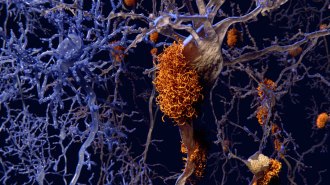 Neuroscience
NeuroscienceAlzheimer’s may scramble metabolism’s connection to sleep
Mice designed to have brain changes that mimic Alzheimer’s disease have altered reactions to blood sugar changes.
-
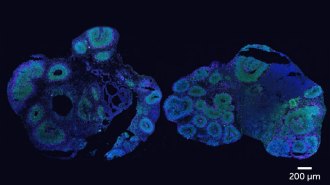 Neuroscience
NeuroscienceOrganoids offer clues to how brains are made in humans and chimpanzees
Three-dimensional clumps of brain cells offer clues about how brains get made in humans and chimpanzees.
-
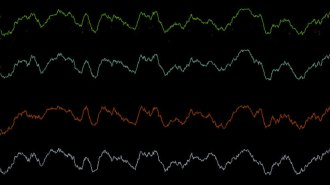 Neuroscience
NeuroscienceDueling brain waves during sleep may decide whether rats remember or forget
In a slumbering rat, two distinct kinds of brain waves have opposite jobs.
-
 Health & Medicine
Health & MedicineSeth Shipman recorded a movie in DNA — and that’s just the beginning
Seth Shipman is developing tools that may reveal hidden biological processes.
-
 Neuroscience
NeuroscienceMaryam Shanechi designs machines to read minds
Maryam Shanechi creates computer programs that link brain and machine to one day help patients with paralysis or psychiatric disorders.
-
 Humans
HumansArtists who paint with their feet have ‘toe maps’ in their brains
Brain specialization comes with toe specialization in people who use their feet for painting, eating and writing.
-
 Life
LifeHuman meddling has manipulated the shapes of different dog breeds’ brains
By analyzing the shape of different dog breeds’ brains, researchers show how humans have manipulated the animals’ brain anatomy.